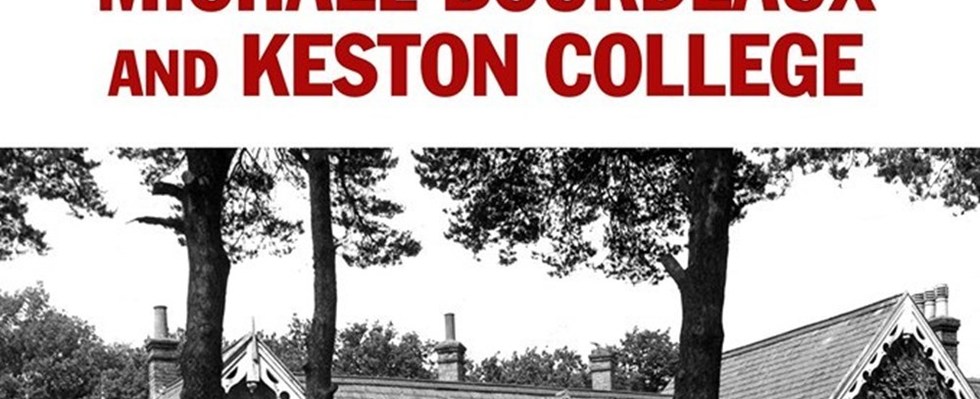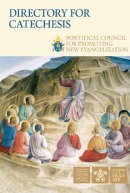Book Review: A voice for the voiceless
Article:
01.09.20
A voice for the voiceless
One Word of Truth: The Cold War Memoir of Michael Bourdeaux and Keston College by Michael Bourdeaux, Darton, Longman and Todd, 328pp, £15.99 reviewed by Alenka Lawrence
It was 1959 in Moscow. A British exchange student was exploring the city, counting churches. Of some six hundred churches
there before the 1917 Communist revolution, only thirty-five were still open.
Michael Bourdeaux, Oxford graduate, later Anglican priest, had reached the USSR by numerous twists of fate, or, as he would prefer, the ‘unseen hand of God’, via his father’s bakery, National Service and toothache, which led to an unexpected chance to use his linguistic talents in Russia. A lurid KGB hotel room sting, worthy of a John le Carré novel, nearly made him give up and head home but his ‘Cornish granite’ meant he wasn’t a quitter. In Moscow he was to meet both crude Soviet propaganda and the kindness of strangers, both his future wife and his future life’s direction.
‘Be our voice’
Back in Britain, Bourdeaux read harrowing smuggled testimonies of persecution at a Ukraine monastery. One monk had suffered ‘psychiatric abuse, incarceration in the local asylum and the infliction of mind-bending drugs by injection. The “illness” was belief in Christ.’ On a subsequent Moscow visit, Bourdeaux asked Christian friends about persecution in other provincial areas. ‘Provincial areas? It’s happening right here in Moscow.’ They sent him to a heap of rubble and bent crosses, the newly-demolished St Peter and Paul church. Two women nearby astonishingly turned out to be the authors of those monastery documents. ‘Be our voice’, they begged. Bourdeaux took them at their word.
A believers’ Bletchley Park
He would go on to found a critically important western institution of the Cold War. Keston College, named for the redundant Kent school from which it operated, became the pre-eminent information centre for religious belief under Communism – a sort of believers’ Bletchley Park. Staffed by dedicated researchers, many with unparalleled expertise, its mission was not to lobby or evangelise but to present the facts. Although it worked closely with, for example, Catholic organisations like Aid to the Church in Need, Keston was ecumenical, reporting on Christians, Jews, Muslims, Buddhists, even Pagans. Information came from official media, from secretly published ‘samizdat’, from ‘crumpled pieces of tissuethin paper covered with microscopic writing’ as former prisoner of conscience Alexander Ogorodnikov described in a touching accolade.
Michael Bourdeaux has written extensively on religion under Communism. One World of Truth (the title comes from Alexander Solzhenitsyn’s Nobel Prize speech) describes his own remarkable journey and Keston’s. In its heyday in the 1970s and 80s, Keston’s influence stretched widely – from educating politicians (as a result of Bourdeaux’s advice, a British official visiting Prague had a pioneering meeting with the dissident playwright Vaclav Havel) to channeling source material to the press and grassroots supporters.
Glasnost
Then along came the players who would change the Communist world forever: Pope John Paul ll – whose decisive influence on events Bourdeaux rightly emphasises - Ronald Reagan and Mikhail Gorbachev with his new ‘glasnost’, or openness.
In 1988 I joined a group travelling to the Christian Millennium celebrations in the USSR. Michael Bourdeaux, long denied a visa, had optimistically agreed to lead us. At 9pm the night before departure, his phone rang. ‘Mr Bourdeaux, this is the Soviet Embassy.’ He could go. I witnessed the delight that greeted him among dissidents organising the unofficial gatherings which he movingly describes.
Maligned by foes and allies
Keston was maligned, not just by Communist authorities and compromised church leaders but also by some wouldbe allies. When Bourdeaux received the Templeton Prize for Progress in Religion in 1984, the World Council of Churches, he reports, was less than gracious. ‘It occurred to me …. how deeply distasteful it must have been for (the General Secretary) to be there.’ Critics, some too easy on Communism, claimed Keston was ‘rocking the boat’, that believers would be safer without the publicity. Not so, Bourdeaux says.
Take imprisoned Russian poet Irina Ratushinskaya. Another redoubtable Anglican priest, Dick Rodgers, spent Lent in a cage on Soviet-style prison rations to highlight her suffering. With the help of publicity from Keston, Ratushinskaya was released just before the 1986 Gorbachev- Reagan summit. Many victims, often languishing alone and forgotten, might well have given up without the support and prayers that Keston enabled.
Bizarrely, Bourdeaux was sometimes pilloried from the other side, from campaigners depending on evil tidings from the Communist world, for Keston’s scrupulous reporting of good news along with bad.
After Communism crumbled
As Communism crumbled in the USSR and Eastern Europe, Keston was a victim of its own success. The donor funding on which it depended dwindled as people assumed it was no longer needed. Mistakenly, Bourdeaux insists. Post-Soviet Russia, for example, brought new opportunities but also new religious restrictions.
Debates on Keston’s way forward were heated. Bourdeaux puts his own case in heartfelt detail. Occasionally it feels like an intrusion into someone else’s family quarrel. But as a historical record it’s invaluable. And nothing detracts from Keston’s legacy. It survives in new ways, its priceless archive now at Baylor University in Texas. Bourdeaux remains upbeat, convinced that God was always in charge. Even when close to despair, ‘I was never alone’.
Believers are still persecuted
And his book is timely. Soviet propaganda posters may seem absurd, with their creepy priests and spacemen trumpeting, ‘There is no God!’ But our age has its own absurdity - unfashionable opinions hysterically hounded, news and history manipulated. Believers are still persecuted. Truth has never been more vital.
As for those who see Communism as something warm and fuzzy, they should do time among Keston’s archives. And they could do worse than read this book.
Notes:
Alenka Lawrence is a freelance writer and former Editor with the BBC World Service.






